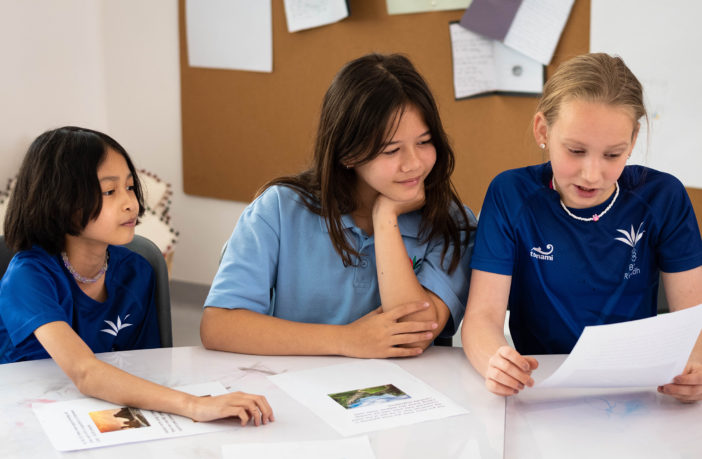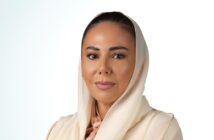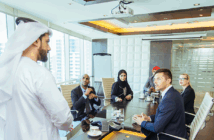Learning, Enrichment and Wellbeing
The British International School of Riyadh (BISR) is a not-for-profit multi-campus school, providing high-quality education to students aged 3 to 18 since 1979. BISR offers a holistic education with broad collaborative programmes, including extra-curricular activities, leadership opportunities, service programmes, and residential trips.
The newest BISR campus opened in September 2020 in the heart of the Diplomatic Quarter (DQ). The DQ campus is a modern vibrant learning environment with spaces that support a play-based approach with the youngest children, along with specialist facilities to deliver learning for the older students studying for qualifications offered by a range of international awarding bodies. The library sits at the heart of the school with plenty of spaces both indoors and outdoors to support sporting activities. The leadership team at BISR work closely with members of the DQ community to create a number of partnerships to support extra-curricular programmes. Students of the DQ campus have full access to the BISR desert camp a short distance from Riyadh. Additionally, a broad range of extra-curricular activities are offered at the DQ campus; students are also given a chance to participate in local and international trips.
DQ Living Magazine had a great opportunity to discuss the BISR DQ campus, facilities, and curriculum.
How do you envision the contribution of BISR to the multicultural community of DQ?
We are very proud to be a community of over 60 different nationalities at BISR DQ. We see ourselves as a hub within the community, drawing together families from around the world in our common goal of providing a high quality, holistic education for our children. Children learn most effectively when they are supported in this process by parents and the school. Our families have the opportunity to meet regularly with the BISR DQ team, joining us for concerts, sporting activities, exhibitions of student work, and other special events. When not in use for student activities, we offer a range of activities for parents and members of the wider DQ community.
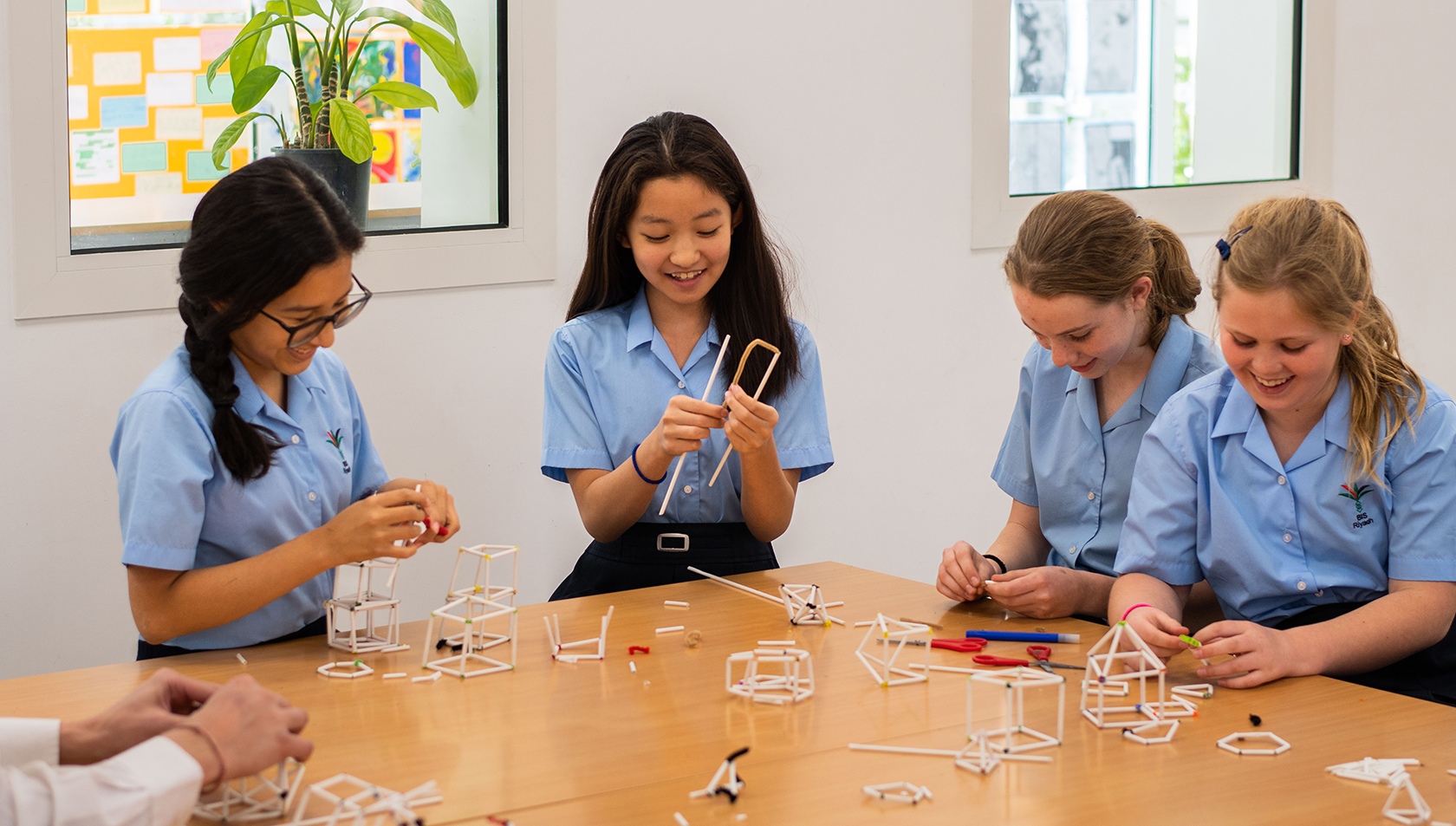
What is the difference between the DQ and Al Hamra campuses’ academic programmes/curricula? Are there specific admission requirements for BISR DQ campus?
At both campuses, the primary curriculum is underpinned by the English national curriculum, adapted to reflect our international context and local learning opportunities. At the DQ, our 11–14-year-old senior school students follow the International Middle Years (IMYC) Curriculum, with students in years 10-11, following International General Certificate of Secondary Education (IGCSE) programmes of study.
Our oldest students at BISR DQ follow the International Baccalaureate Diploma programme, a prestigious course for 16–18-year-old students offered in over 97 different countries around the world. The IB Diploma programme is widely considered to be the premier post-16 qualification in the world, giving students access to higher education courses in top universities globally.
Please elaborate on IB Diploma at DQ campus and AS/A Levels at Al Hamra campus.
The IB Diploma programme (IBDP) incorporates both breadth of study and depth of knowledge, enabled by the IB approaches to teaching and learning, which are grounded in contemporary educational research. Students study six subjects from the groups shown in the graphic below- three at standard level and three at higher level – selected from: studies in language and literature; at least one additional language; the humanities under ‘individuals and societies’; the sciences, technology and design; mathematics, and the arts (the latter may be substituted for an additional subject from groups 2-4).

The core components seek to ensure that students flourish physically, emotionally and ethically, as well as intellectually. Students explore the nature of knowledge itself and learn to examine their own assumptions through the programme’s unique theory of knowledge course. The extended essay is a self-directed piece of research, culminating in a 4,000-word paper on a subject of the students own choosing – a great experience to draw on for independent work at university and beyond. The Creativity Action Service (CAS) component engages students in experiences that involve creative thinking; physical exertion contributing to a healthy lifestyle; and an element of unpaid, voluntary exchange, complementing the academic demands found elsewhere in the programme.
Should students prefer to opt for A levels, studying a narrower range of subjects in their final two years, this is still available to them as an alternative route at our Al Hamra campus.
What is your vision for the future collaboration with the Royal Commission for Riyadh City, DQ Management in terms of expanding students’ educational experience beyond the standard curriculum?
At BISR, student learning is underpinned by three pillars: learning, enrichment and wellbeing. Being in the heart of the DQ, we are able to tap into a range of guest speakers and access local facilities to enhance our work in these three areas. As the DQ continues to develop, for example with the sports center next to our BISR DQ campus, we look forward to making new connections and evolving strong partnerships.
We already use the DQ footpaths to support our Duke of Edinburgh Bronze Level Award and are developing links with a range of embassies. Our campus is set in an attractive urban landscape providing great spaces, both indoors and outdoors, to support learning and wellbeing. We have ambitious plans to develop our outdoor curriculum further, taking advantage of these spaces within the wider DQ area.
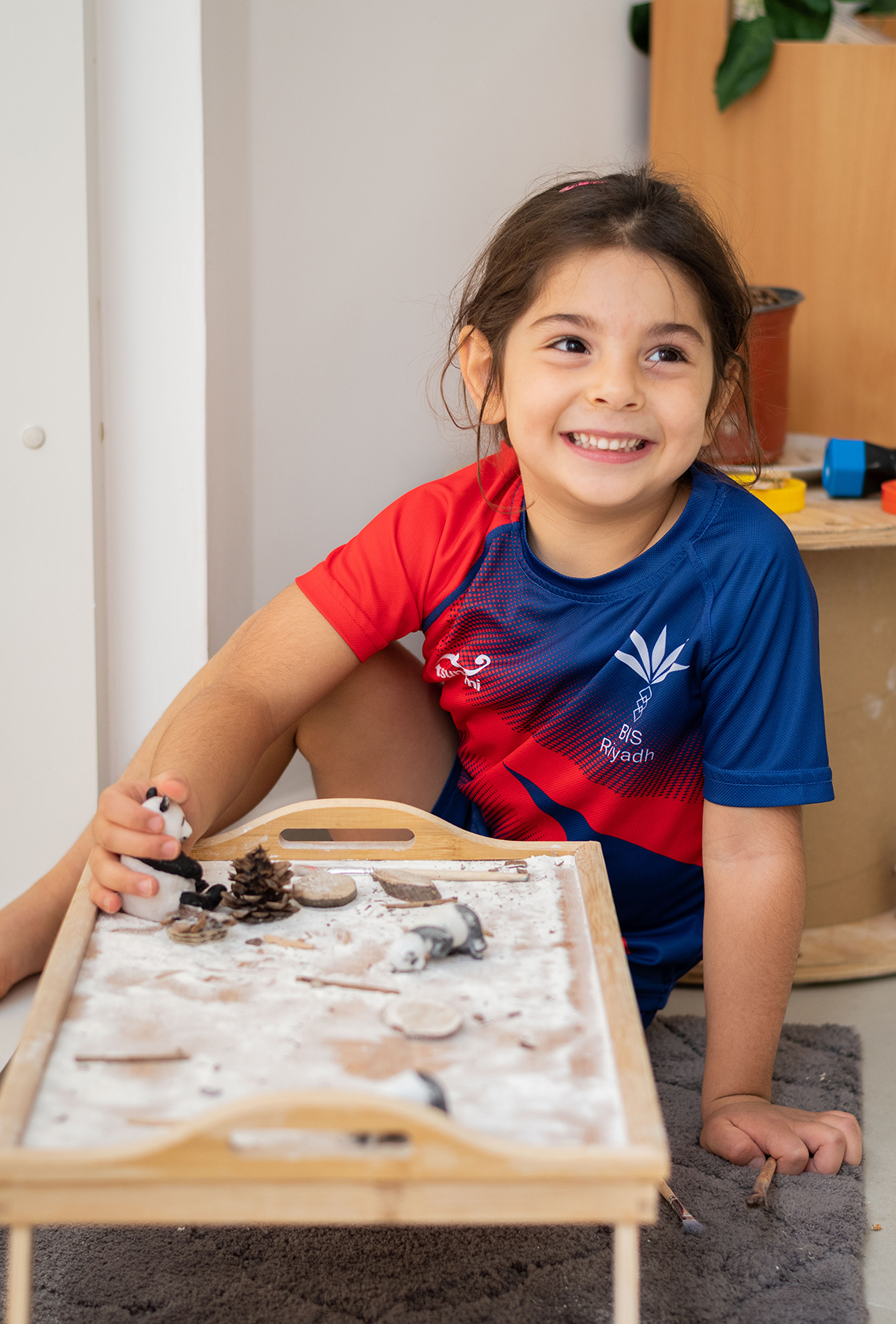
What will be your remarks on the concept of DQ in accomplishing REACH (respect-excellence-accountability-challenge-happiness) vision and mission of BISR?
At BISR our vision and mission underpin all that we do. We offer world class programmes, with equal emphasis on learning, enrichment and wellbeing. Students learn most effectively when they feel happy, safe and secure, making wellbeing a priority. Participation in enrichment activities such as extra-curricular clubs, trips and service learning supports the achievement of strong academic outcomes. We therefore focus equally on all three of these areas.
At BISR we are committed to offering programmes that are on a par with the best international schools around the world. To this end we are accredited by a range of different organizations, including the International Baccalaureate Organisation, the Council of International Schools, and as a British School Overseas. Each organization has rigorous standards and allows us to measure ourselves against top schools in the UK and internationally.
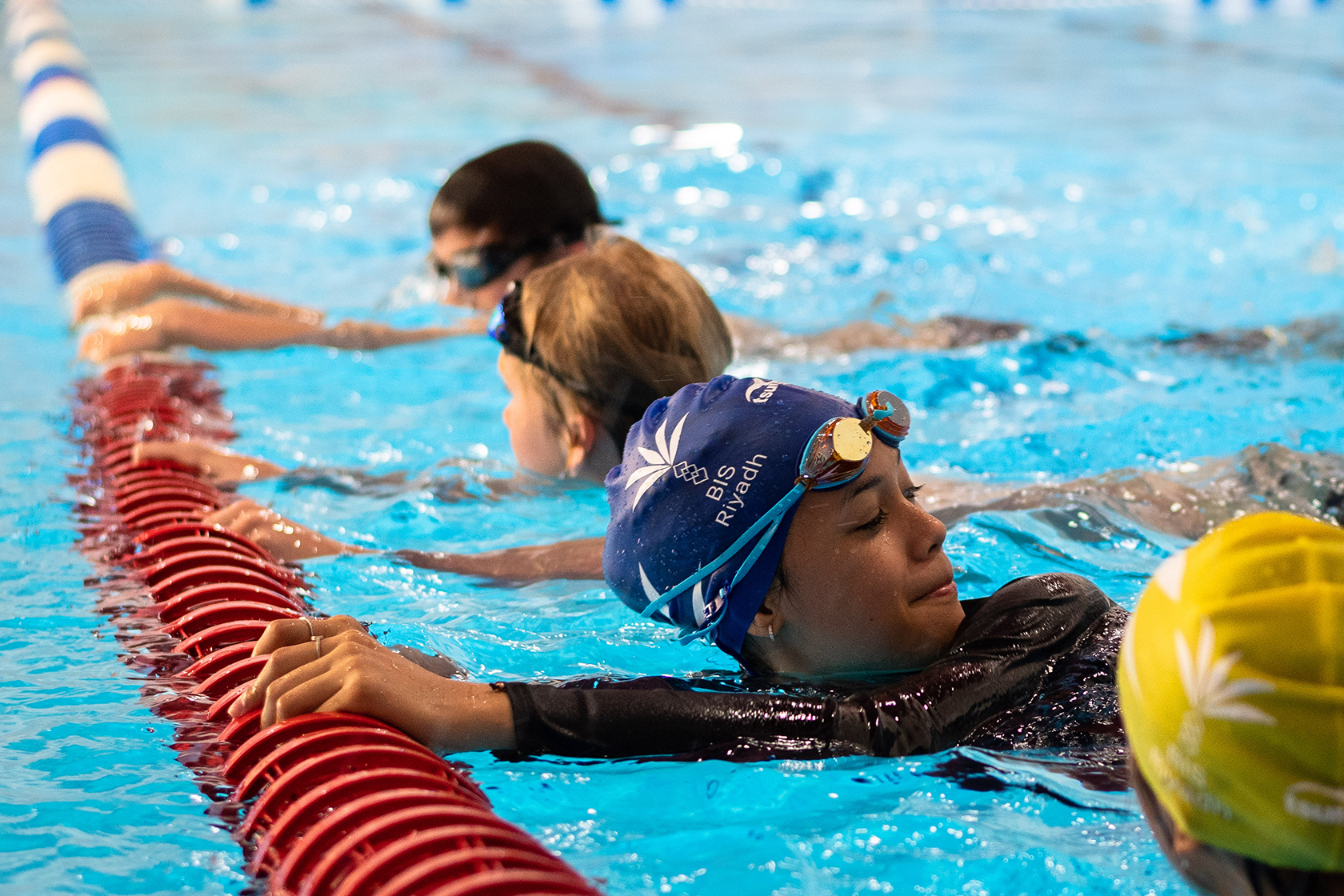
How do you see the role of BISR in upbringing the future Saudi leaders in these times of great changes as part of Vision 2030?
Like Vision 2030, our vision at BISR is also ambitious and outward looking. Combining a multicultural environment with a world class curriculum will help prepare our students well for life in modern Saudi Arabia. Students are provided with plenty of opportunities to develop their leadership skills within a range of different contexts. Our emphasis is on creating flexible, creative and skilled individuals who are critical thinkers and great problem solvers. We support them to work collaboratively and be able to communicate their ideas clearly and convincingly. Our REACH motto emphasizes character development, something that we support through our learning, wellbeing and enrichment programmes.

